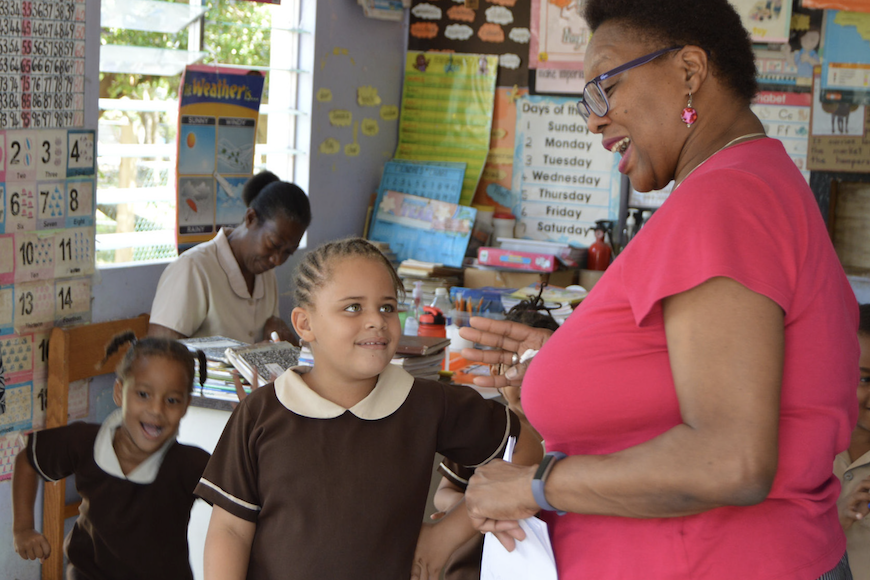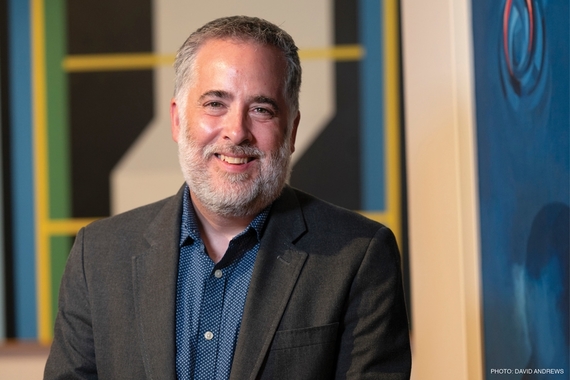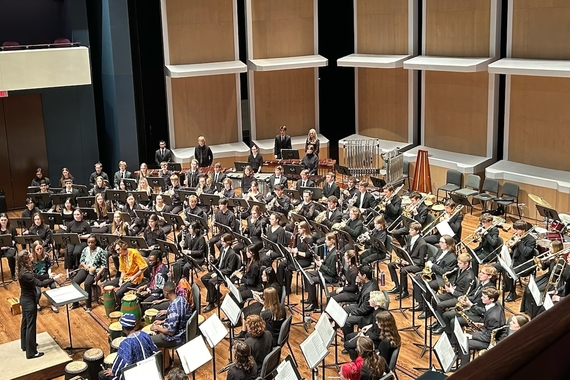Faculty Profile: Akosua Addo is Recentering Musical Roots
Akosua Addo, along with support from a Fulbright and a team of collaborators, is bringing folk music back to the forefront of music education around the world.
Professor Akosua Addo grew up listening to her mother singing Jamaican folk music as they walked the roads of Ghana together. Half-Jamaican, half-Ghanaian, learning about and teaching music around the world is literally in her DNA.
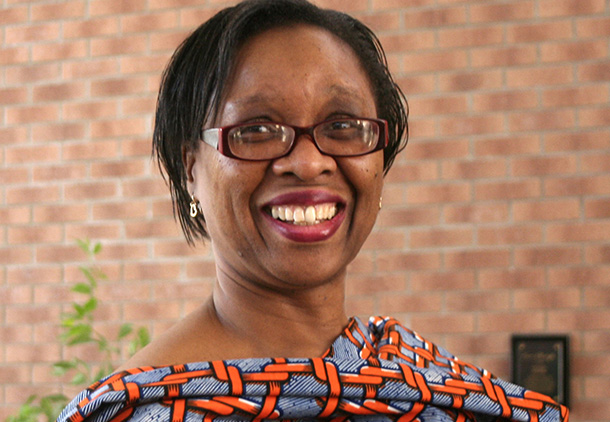
“I am especially gratified I am paying homage to my mom,” she says. “To be back in the same country where my mom grew up, teaching the appreciation of that music ... those were feelings of affirmation and joy.”
With years of conversation and collaborative forums behind her about international music education, Addo married her impressive career knowledge with the Organization for Strategic Development in Jamaica and Project Good Works Jamaica to ask Jamai- can teachers this question: What music curriculum is culturally appropriate to teach to your students at this time in history? “There’s a shift in the curriculum to reflect what goes on in North America,” Addo says.
“We cannot throw out the baby with the bathwater,” she continues. “Globalization is ingrained in curriculum because of the country’s history of colonialism. But to what extent do you look at your own music and make sure it has a place in the curriculum? Not just in your own music, but your own ways of knowing, learning, and resourceful sustainability? We ask, what have you traditionally used to make music and what have you sustainably repurposed for your children to use? That is the direction I am pushing.”
Addo wasn’t sure what kind of reception to expect for the program, which offered a workshop for teachers at Church Teachers College, Mandeville, and lessons for preschoolers. She had traveled to Jamaica before and led study abroad programs there—but would teachers and students be interested in these folk music ideas? When the plane landed, 55 teachers had signed up for the workshop, which focused on art integration into their curriculum. The day before the event, 120 teachers had signed up. In the end, more than 150 teachers attended organized under the auspices of the Ministry of Education, Youth, and Information, Jamaica. The attendees’ feedback? Next time, reserve more space.
During the workshop, Addo presented a storybook written by a Jamaican author. “I wanted to demonstrate for teachers that not only do you teach language and literacy but also music learning in retelling a story with children, and how children can learn with culturally appropriate material,” she says.
As part of the trip, she taught music lessons to eager, affectionate preschoolers. One child who has special needs did not speak much at school. But as the children worked through a musical exercise, “I saw him jump up, sounding out the B [sound]. Then, he was singing along with them—I thought, Wow! He talks! I was so touched for the teachers to see how music and play... can help a child overcome their reticence to speak at school.”
Addo is poised to take a well-earned sabbatical, but there are already plans underway to return to Mandeville, site of the last workshop, and the capital, Kingston, when she returns to work. Plus, she says, word is spreading about this international education outreach—and so is interest.
“I would have never thought it’d get to this stage, working in curriculum development in Jamaica and Ghana, and now hopefully a new door has opened to do so in the Bahamas. ... it’s a little bit overwhelming. I am humbled by the prospect. Every day I pinch myself that I’m actually doing something that I enjoy. It’s a privilege, and the University of Minnesota has opened these doors for me.”
Addo has worked with many others to open doors to U of M students and the community here at home, too. This year, visiting Jamaican scholars and artists spoke to her classes when, along with her School of Music colleagues, she helped put on the first-ever Summer Institute for Reggae Studies.
“It’s broadening the understanding of people from different countries and acknowledging the role all these people make in contributing to the rich fabric of life in Minnesota and beyond,” she says. “And it helps students to not be myopic, learning the language of true inclusion and language of diversity—not just of race, but of thought. About the way you think and research and teach. It broadens their perspective and fosters inclusion, considering whose voice is at the table.”
Next up: Ghana. Addo is headed there as a 2019-2020 U.S. Fulbright Scholar to work with teachers on resource development and write an extended post-colonial narrative on Ghanaian children’s singing games.
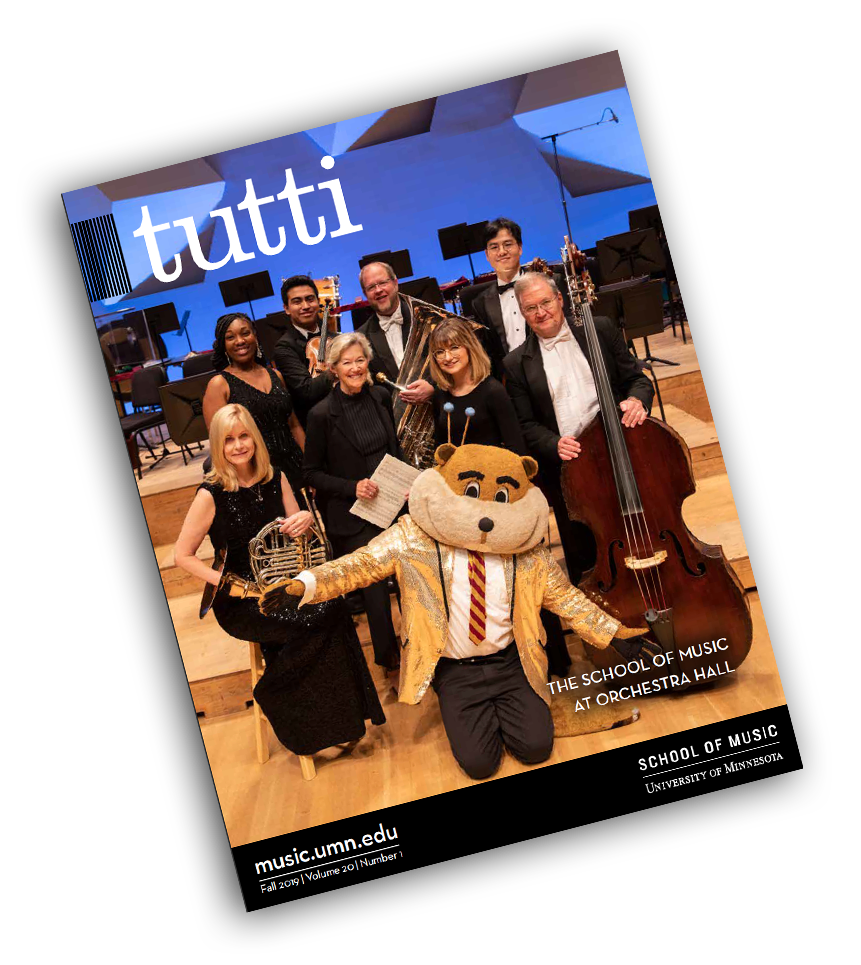
Tutti. (Italian) all. every musician to take part.
Tutti is the annual magazine of the University of Minnesota School of Music.
